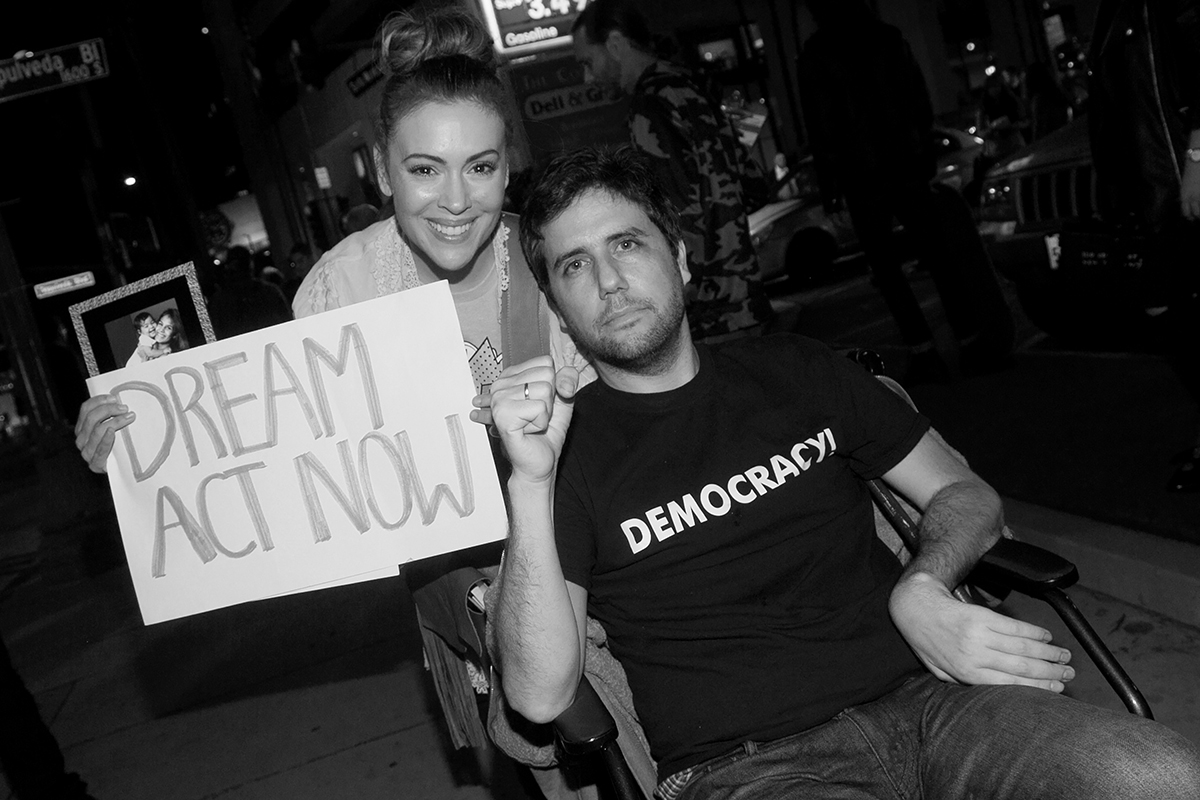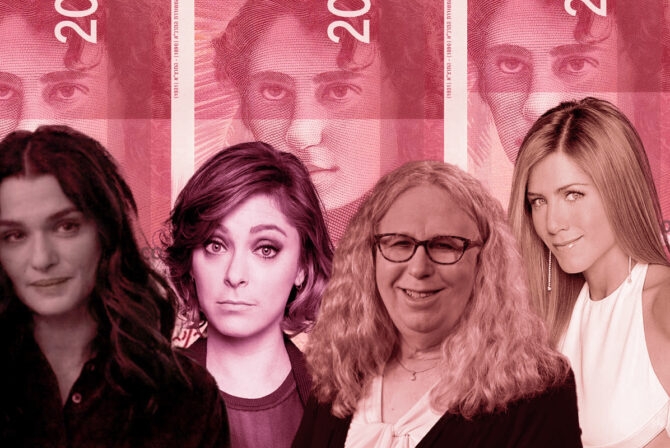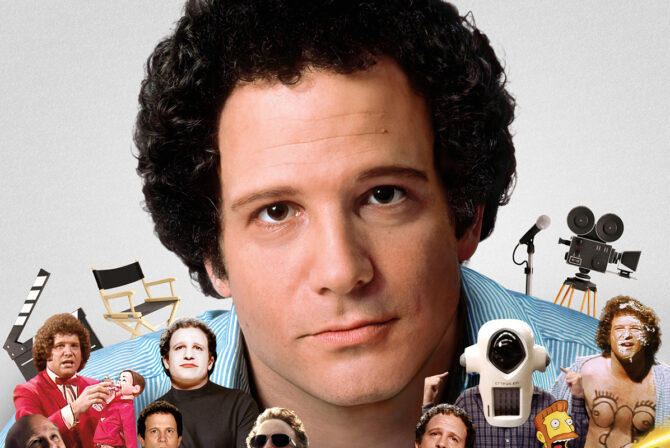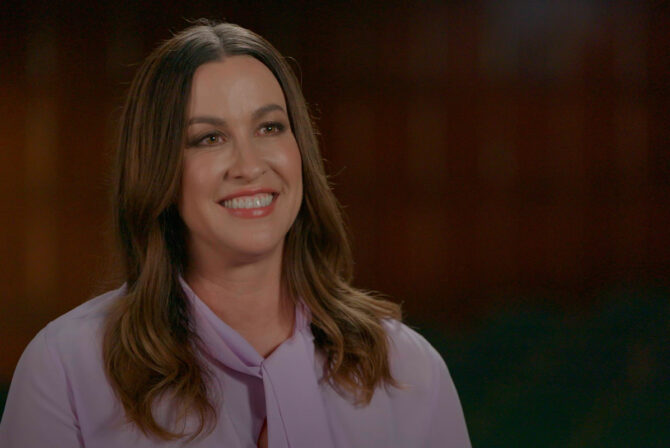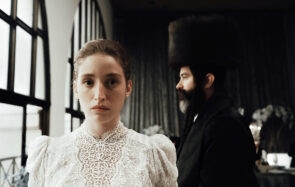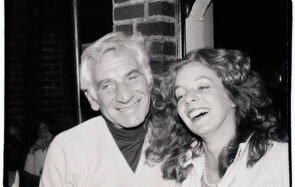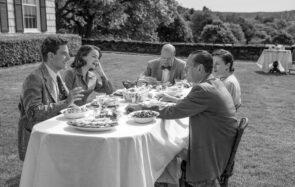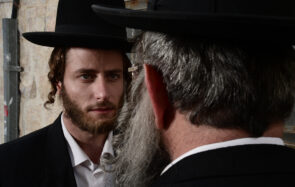Ady Barkan,who died this week from complications of ALS at age 39, was tikkun olam personified.
The Jewish value of fixing the world was apparent in his life’s work, even if he was raised a secular Jew. He embodied that oft paraphrased line from the Talmud: “Do not be daunted by the enormity of the world’s grief. Do justly now, love mercy now, walk humbly now. You are not obligated to complete the work, But neither are you free to abandon it.”
In eulogizing the father of two after his passing, many great political figures echoed these lines we often associate with healing the world.Hillary Clinton tweetedthat he “embodied the principle of doing all the good you can, in all the ways you can, to all the people you can, as long as ever you can.”
“Ady Barkan was an inspiration to all of us,”Bernie Sanders shared on X, the platform formerly known as Twitter, “There are very few people in this country who have done more to make health care a human right. To honor his life, let us dedicate ourselves to completing his work.”
Jon Favreau, former speechwriter for President Obama and founder of Crooked Media, sharedthat Barkan “was a beautiful soul who was full of love and grace towards everyone he met, especially the people whose minds he never stopped trying to change. We should honor him by learning from his life.”
“Ady Barkan was a hero who made this world a better place,” Senator Elizabeth Warren, who kept a photo of Barkan’s young son Carl on her desk, and was his frequent collaborator in the fight for Medicare for All, wrote.
“We’ve always known we wouldn’t have enough time with him. While we don’t know how to imagine a world without him learning, strategizing, fighting, and laughing alongside us, we do know that through Be A Hero and the movement of patients we are building, Ady’s work will live on,” Jamila Headley, the co-executive director of Barkan’s nonprofit Be A Hero, wrote.
Born Ohad Barkan in 1983, to two parents who met and fell in love in Israel (he had dual American and Israeli citizenship andhad some pretty stern opinions about AIPAC and Israeli politics), he decided he wanted to be a lawyer and help others after reading “To Kill A Mockingbird.” After graduating from Columbia and Yale Law School, Barkan clerked for judge Shira Scheindlin, before dedicating his life to activism and lobbying in 2011following the Occupy Wall Street protests.之前co-founding Be A Hero in 2018, he worked for the Center for Popular Democracy where he developed the Fed Up campaign to change the way the Federal Reserve to be more democratic and equitable.
在他的激进主义的基础是爱,爱for his fellow humans, but also, on the more micro level, love for his family. He had just welcomed his first son with his wife, Rachael, who he met as a student in Columbia, when he got his ALS diagnosis in 2016. His daughterWillow was born in 2019.
“All that matters to me is to make you proud of your old dad, because I’m already so proud of you,” he said in a 2018 Be A Hero video dedicated to Carl.
“Words cannot express the pain of losing Ady. We were together for 18 years. We thought we had many more together. I miss him so much,” his wife Rachael King wrote on Twitter, adding that “a small point of solace is that Ady was able to fulfill his choice to be an organ donor. It’s beautiful to think that his death will save others’ lives. As the nurse said to me—not knowing how resonant her words would be—’at this point, he can be a hero for many families.'”
Barkan fought for many causes, but when he got his diagnosis, he became singularly focused on fixing America’s ailing healthcare system. “The knowledge that I was dying was terrible, but dealing with my insurance company was worse,”he said in the 2021 documentary“Not Going Quietly.” He also wrote a memoir titled“Eyes to the wind.”
Barkan was also profoundly grateful for all the caregivers who worked with him around the clock. “My whole life is only possible because of your care and your labor,” he shared on Labor Day this year.
In his conversation with politicians, he often knew how to bring in their pain points in ways that were both compassionate and opened them to compassion for other people’s struggles with the American healthcare system. He showed policymakers that these people weren’t an abstract — they were people like Barkan himself, struggling with an unwieldy system that refused to let him keep living with dignity without a fight. He spoke in the first senate hearing for Medicaid for All. He was a part of presidential debates and endorsed first Elizabeth Warren and then Joe Biden,with whom he had a very meaningful debate about politics and healthcare. He was arrested at least seven times while protesting at the capitol.
Barkan stayed in the fight to fix our health care system until his last days. Back on October 12, Barkan shared his conversation withSenator Jeff Merkleywhere Barkan spoke about his fight against the Medicare Advantage program and how the involvement of private healthcare companies was harming Medicare. They discussed Merkley’s bill called No UPCODE, which aims to stop private companies from overcharging.
“The paradox of my situation has been that as ALS has made my voice weaker, more people have heard my message,”he told NPR in 2022.“As I’ve lost the ability to walk, more people have followed in my footsteps.”
I have been feeling increasing despair recently — about our ability to see each other’s humanity, to feel compassion for the other, to affirm that we are all deserving of basic things like access to healthcare, to freedom, to safety.
Barkan worked with people who didn’t always agree with him, and yet they are all so passionately eulogizing him now and appreciating him for the powerful changemaker that he was. I think we can all agree that his life’s mission is one that can inspire us — to fight for justice in the face of grief, to turn our biggest obstacles into a way to heal the world. Even if we can not complete the work for our children or for the generations that follow, it is our duty to try to be a hero; to persist in it.
May his memory be for a blessing and a revolution.
